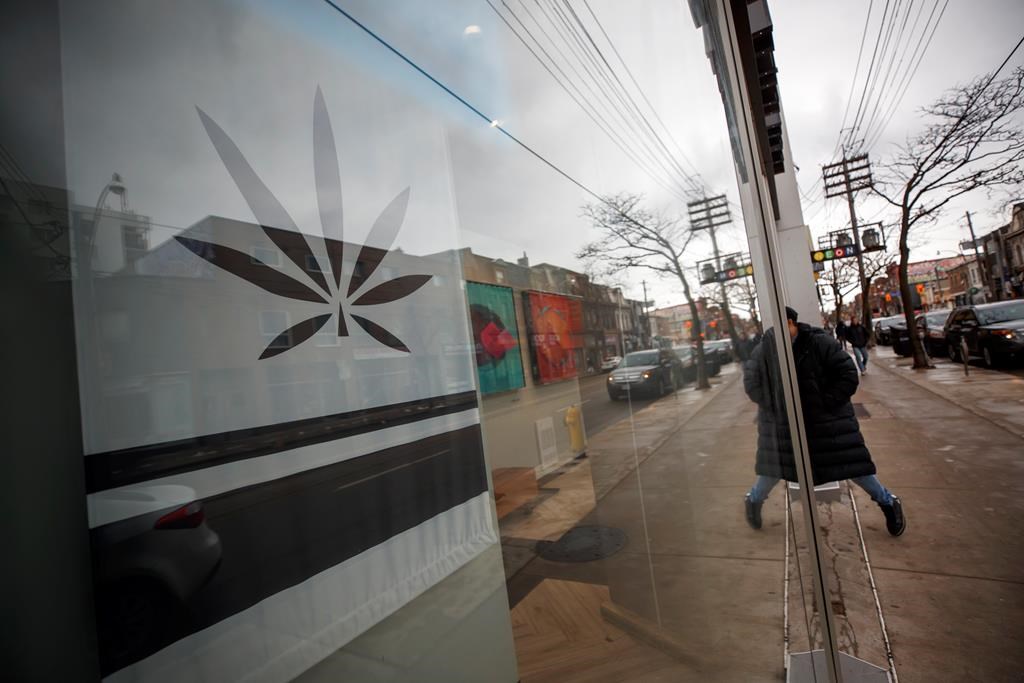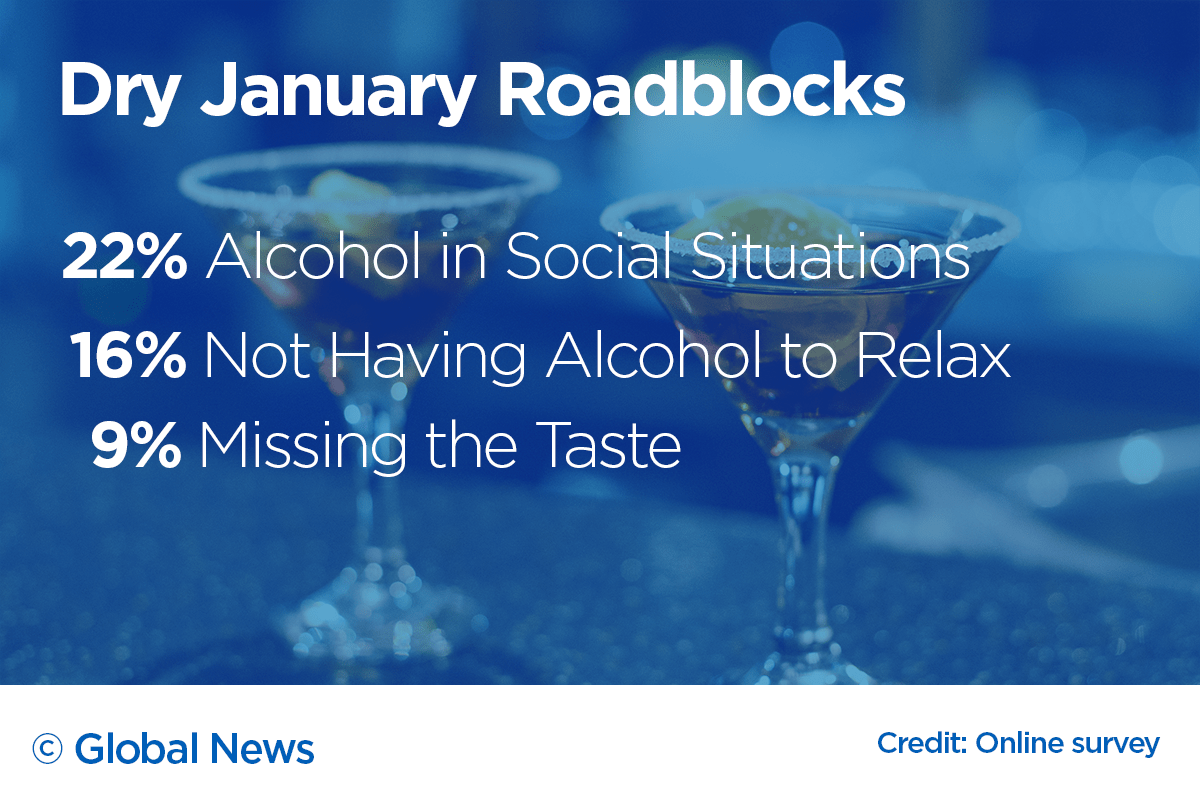As some Canadian adults embark on the month-long alcohol abstinence known as Dry January, new found that just because some are ditching booze for a month it doesn’t mean they’ll pass up a joint.

Canadian cannabis brand Foray, which specializes in derivative products such a edibles, vapes and soft chews, conducted an online survey of 1,500 Canadians over the age of 19 between Dec. 10-12, 2019.
The survey found one-third of Canadian adults plan to take part in Dry January.
“It definitely indicates a trend,” said Eric Goulet, Foray brand director, noting half of those respondents hadn’t taken part previously.
The survey found that of weekly drinkers, 60 per cent said having a non-alcoholic alternative would make abstaining easier – with 23 per cent saying they consider cannabis a viable alternative to alcohol during Dry January.
“When we dug a bit deeper, they gave us examples like fewer hangovers, overall improved state, so those were some of the things the respondents associated to cannabis,” Goulet said.
The survey noted there doesn’t appear to be major differences in age, as 41 per cent of those 19-29 and 35 per cent of those 30-34 say they they’re most likely to use cannabis during Dry January.
“If you’re looking at things that are gluten-free, or vegan, even things like calories … people are talking more about those aspects and how cannabis can address that” – Eric Goulet, Foray brand director
However, the 30-44 demographic is most worried about making it through Dry January, with only 43 per cent believing forgoing alcohol will be easy.
Results indicate ‘shifting attitude’ to cannabis
The survey found one-third of Canadians consume cannabis, with 20 per cent reporting they do so once a week.
Weekday and weekend evenings were reported as the most popular use, with both coming in at 62 per cent.
The survey also found 77 per cent of respondents believe cannabis is a better choice or equivalent to alcohol.
“It just shows shifting attitudes,” Goulet said. “If you’re looking at things that are gluten-free, or vegan, even things like calories … people are talking more about those aspects and how cannabis can address that.”
Isaac Watson is the vice-president of product development and retail experience for Fire and Flower Cannabis.
He said the conversation comparing cannabis and alcohol is common across all the company’s locations.
“There’s obviously many ways that you can consume cannabis … and that seems to be winning people over,” Watson said.
Watson added the stigma surrounding cannabis use is still prevalent, despite some markets and communities showing a change in attitude.
“Actually being willing to talk about their use of the product,” he said. “For a long time, people were kind of in the closet about their cannabis use, and it’s starting to be a little bit more okay to talk about it more publicly.”
The survey data was weighted according to Statistics Canada data. Though no margin of error (MOE) can be assigned for non-probability samples, the MOE for a comparable random sample of the same size is +/- 2.2 per cent, 19 times out of 20.





Comments